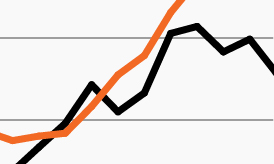The private credit asset class has grown from a niche corner of institutional investor portfolios to a multitrillion dollar market accessed by a wide variety of investors. This extraordinary growth in both size and breadth has led to questions around risks and whether this market could represent a bubble.
Key takeaways
- The rapid growth in private credit has increasingly and understandably raised questions around its risks.
- The lack of rise in private sector indebtedness over the past decade contrasts starkly with past episodes and defies the notion that private credit is fueling a bubble.
- The sensationalized concerns around private credit present in today’s media fail to hold up under scrutiny. In our view, the private credit risks to which investors should be most attuned are the ones present in broader credit markets.
At their core, financial bubbles involve a willingness of investors to finance assets at values that, with the benefit of hindsight, were well beyond their fundamental value. Credit often plays a crucial role in the formation of a bubble, as lending facilitates the turnover of assets and ultimately, the explosion in value. Given recent concerns that the rapid growth of the private debt asset class (and specifically, private corporate credit) could represent a systemic concern, we apply learnings from past credit-fueled bubbles and apply them to the current landscape. In addition, we directly address the three most common questions we receive regarding private credit and its growth.



